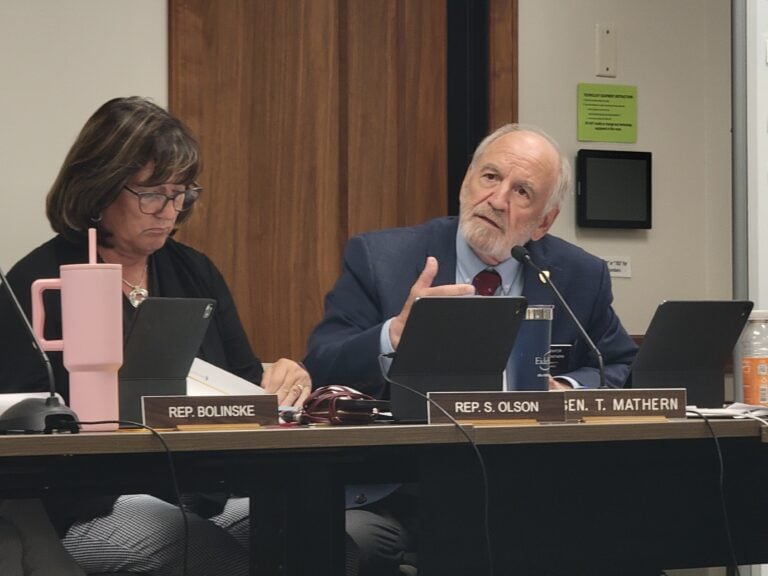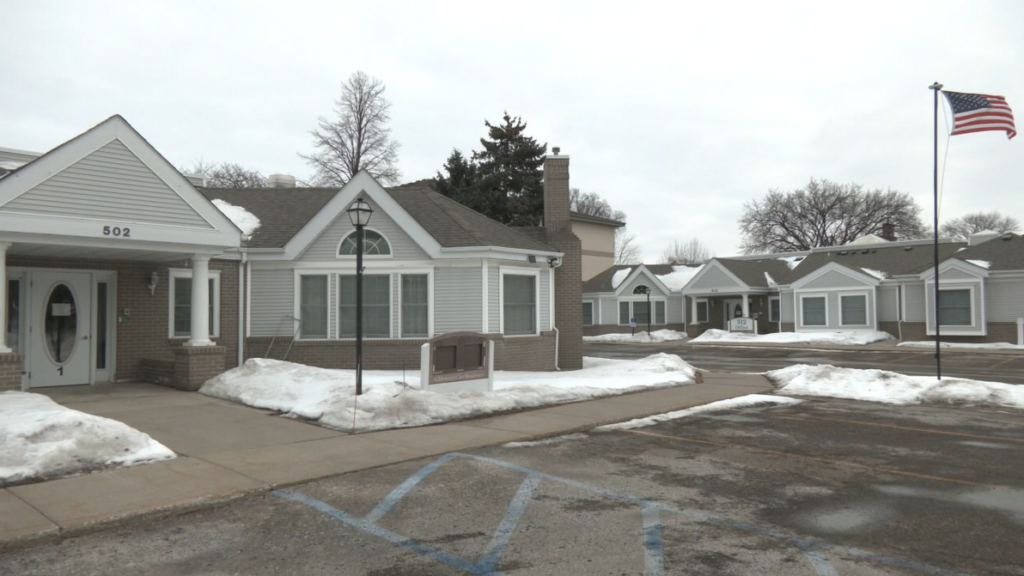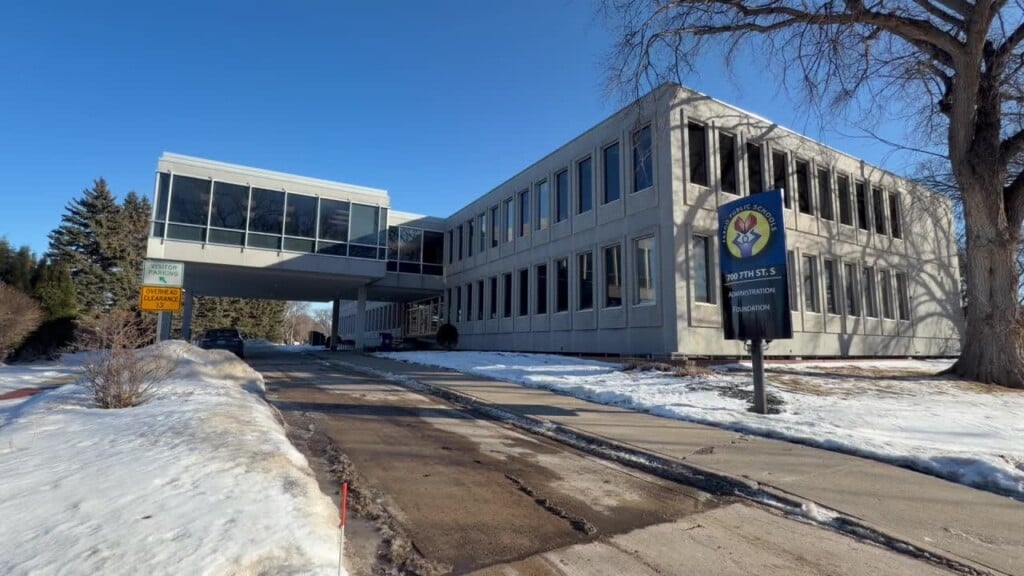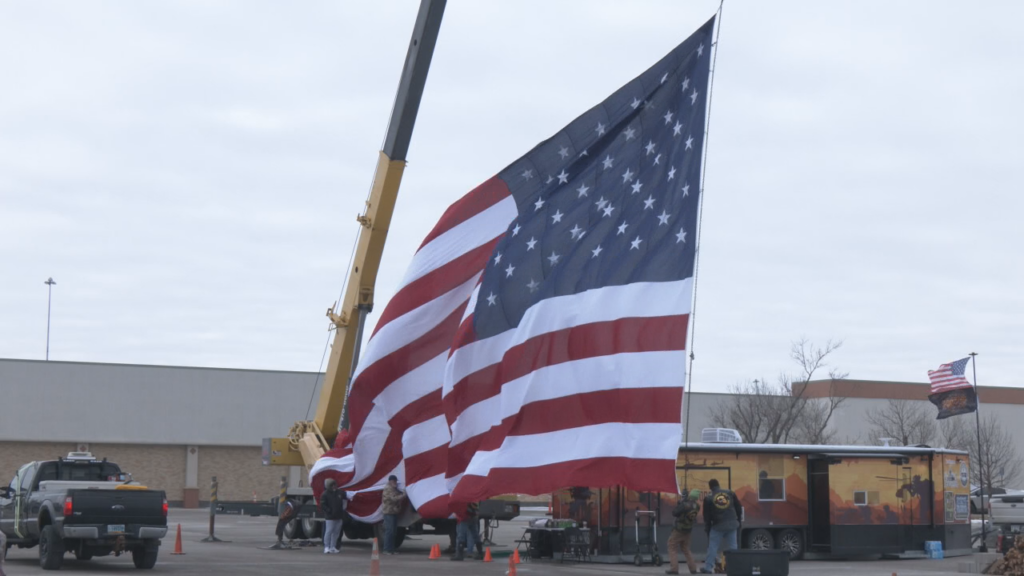Company selected to lay groundwork for nuclear power in North Dakota

BISMARCK, N.D. (North Dakota Monitor) — A North Dakota interim legislative committee has selected Nucleon Energy, a Canadian development company, to chart the state’s path to a nuclear-powered future.
The Alberta-based nuclear development company will spend the next 12 months studying the possibility of attracting the resurgent nuclear power industry to the state. The key elements of the study will include identifying potential locations, gauging public support and laying the groundwork for the federal licensing process.
“We’re believers that nuclear will be an affordable source of power that does not need subsidies that can be competitive with other fuel types,” said Will Bridge, chief technology officer for Nucleon Energy. “That hasn’t proven itself out yet. But we also believe we need to start now.”
The selection was made by the Advanced Nuclear Energy Committee, an interim committee composed of legislators, executive agency representatives and private sector leaders. The group reviewed proposals from nine firms during a Wednesday hearing, including two with North Dakota ties, but ultimately chose Nucleon Energy.
Lawmakers earlier this year approved House Bill 1025, which authorized up to $300,000 in state funding for a nuclear energy study. Nucleon’s proposal included a cost estimate of $275,000.
Nucleon specializes in small modular reactors – smaller and less expensive alternatives to the behemoth facilities providing conventional nuclear power. The company’s presentation emphasized the importance of public engagement.
“I thought Nucleon had the best background material and plan,” said Sen. Tim Mathern, D-Fargo, a member of the committee.
Sen. Tim Mathern, right, D-Fargo, and Rep. SuAnn Olson, left, R-Baldwin, participate in an Advanced Nuclear Energy Committee meeting Sept. 3, 2025. (Photo by Jacob Orledge/North Dakota Monitor)
The company’s first step will be finding the right site. Executives emphasized the importance of existing or planned transmission infrastructure in the site selection process.
“It’s fundamental that we put these where the transmission grid either now or in the near future allows, otherwise we drive up costs for ratepayers and that’s not going to make sense for North Dakotans,” said Ryan Tourigny, Nucleon’s chief development officer.
But the crucial factor in determining whether a site could realistically host a nuclear power plant will be whether there is public support in the local community – or not.
“The permitting cycle for nuclear plants is so long and so expensive that you can’t push that into a community,” Bridge said. Nucleon has had success with bringing neutral experts into a community to educate people on the technology and ensuring that community feels like a partner on the project from day one. “We see that as just good business. You can’t push nuclear facilities into communities that don’t want them.”
The importance of early public engagement was echoed by many committee members.
“As elected officials, we run into the fact that you say the word ‘nuclear’ and you get a radioactive reaction from communities,” said Sen. Janne Myrdal, R-Edinburg, a member of Legislative Management.
Pam Gorman Prochaska, general manager of Xcel Energy’s nuclear fleet and one of the private sector representatives on the committee, said she has seen that play out. County officials in Minnesota approached Xcel about bringing nuclear power to their community at one point, Gorman Prochaska said, but “within weeks, the anti-nuclear community had infiltrated that community and went literally door-to-door” using a lot of “scare tactics.”
One of the biggest drivers of anti-nuclear sentiment has been the question of where the radioactive waste, a byproduct of nuclear power generation, will be stored. The United States, unlike some other countries, has no centralized permanent storage facility.
“It seems like, nationally, we’ve got a crisis that we don’t have permanent storage facilities,” said Rep. Ben Koppelman, R-West Fargo.
Michelle Zietlow-Miller, testifying for the Gateway for Accelerated Innovation in Nuclear, said the lack of a central depository for nuclear waste is not a significant issue. All of the nuclear waste produced in the United States during the last 40 years can fit on a single football field, she said, 15 yards high. The waste is solid, not liquid, and is typically stored in secure casks on-site at nuclear power facilities, she said.
Ryan Tourigny, chief development officer for Nucleon Energy, presents to a North Dakota legislative committee on Sept. 3, 2025, in Bismarck. (Photo by Jacob Orledge/North Dakota Monitor)
Yet many questions about next generation nuclear reactors remain. Tourigny said they believe the technology will become economical over time and right now North Dakota should focus on laying the groundwork for future projects without necessarily needing to have customers for the electricity lined up.
Bridge, the chief technology officer, acknowledged there are still questions about whether the new generation of reactor technology will be economically viable. There are small modular reactors being developed around the world, Bridge said, but none have so far been proven as both affordable and commercially viable.
Other obstacles in the nuclear industry include lengthy regulatory timelines at the federal level, the potentially prohibitive cost of nuclear power plants compared to alternative fuel sources and reconstructing the domestic supply chain that has been mostly dormant for decades.
Nucleon Energy was not a unanimous choice. Five members of the committee expressed a preference for the runner-up: Excel Services Corporation, which has specialized in nuclear energy development for over 40 years. Excel was named first alternate. Nucleon’s contract for the study will be negotiated by Legislative Council and is subject to approval by Legislative Management’s chair, Sen. David Hogue, R-Minot.
Interest in nuclear power is growing as public utilities look for ways to meet the rising demand for electricity driven, in part, by the proliferation of artificial intelligence and data centers. Katie Austgen, with the Nuclear Energy Institute, told the committee there have been 530 nuclear reactors proposed across North America that could begin operating in the 2030s. Of those, two reactors were recently completed and began operating in Georgia, nine are under construction, and 23 are officially planned.
“The whole country is taking this challenge on,” said Rep. Don Vigesaa, R-Cooperstown. “It’s time to get in the race and get going with this because it’s quite a long process.”
North Dakota Monitor reporter Jacob Orledge can be reached at jorledge@northdakotamonitor.com.






